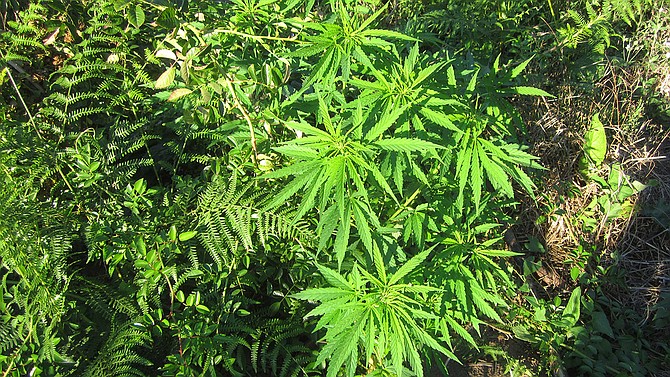Although marijuana has some side effects, its benefits far outweigh its risks, and it is not associated with death and severe side effects like many prescription drugs. Photo courtesy Flickr/medihuana
Given the current crisis associated with widespread opioid abuse, dependence and deaths, Mississippi's leaders must find an effective and safer alternative to prescribing narcotics. Reducing dependence on opioids for pain management is a difficult challenge, but other states have provided their residents with another option: medical marijuana. In response to a growing demand, 30 states, including Louisiana and Arkansas, have passed laws that allow physicians to issue medical marijuana prescriptions or certifications for patients with debilitating disorders.
Studies have found that because of those laws, those states experience lower rates of opioid prescriptions, and recreational addictions and deaths. A study from researchers at Philadelphia Veterans Affairs Medical Center, University of Pennsylvania and Montefiore Medical Center/Albert Einstein College of Medicine showed that states with medical marijuana laws experienced an annual 25-percent-lower-than-average opioid-overdose mortality rate compared with states without medical marijuana laws.
Furthermore, there is significant evidence of opioid cessation among individuals who consume marijuana to treat chronic pain. A study from University of Michigan researchers showed that medical marijuana patients reported a 64-percent decrease in opioid use, as well as a reduction in the side effects that opioid medications cause, and 45 percent experienced an improved quality of life. In a program in New Mexico, middle-aged participants who had habitually used opioids to treat back pain were able to significantly stop using opioids or reduce daily dosage of opioid use. They reported experiencing less pain, a higher quality of life, physical activity and concentration, and few adverse side effects. Researchers at Bastyr University Research Institute showed that of the 2,700 participants—primarily women—using marijuana, most substituted it for prescription drugs (narcotics, opioids, anti-anxiety medications and anti-depressants).
Evidence supports the use of marijuana to manage chronic pain and debilitating diseases. Marijuana could potentially help with issues such as inflammation, Crohn's disease, multiple sclerosis, rheumatoid arthritis, glaucoma, epilepsy, inflammatory bowel disease, post-traumatic stress disorder and more.
The Centers for Disease Control and Prevention reports that overdoses associated with prescription opioids are a leading factor in the increase of deaths caused by opioid overdose. Last year, Mississippi lost nearly 200 residents due to related deaths, data from the Mississippi Bureau of Narcotics show.
Although marijuana has some side effects, its benefits far outweigh its risks, and it is not associated with death and severe side effects like many prescription drugs. Moreover, older Americans are likely using it to treat conditions for which they have received no relief from drug medications and invasive therapies. This may explain the steady increase of marijuana use among the American public. In 2015, an estimated 22 million Americans reported having used marijuana in the past month, data from the Substance Abuse and Mental Health Services Administration show.
This session, lawmakers introduced legislation, House Bill 391 and Senate Bill 2261, to legalize medical marijuana; however, at this point in the session, both of those bills have died. This year, Mississippi was poised to become the next state to give its residents the legal right to use medical marijuana, but the poor leadership of our state legislators proved once again that they are not qualified to address Mississippi's dire public-health issues.
Getty Israel, who has a master's degree in public health, is a health consultant and author. The column does not necessarily reflect the opinions of the JFP.




Comments
Use the comment form below to begin a discussion about this content.
comments powered by Disqus